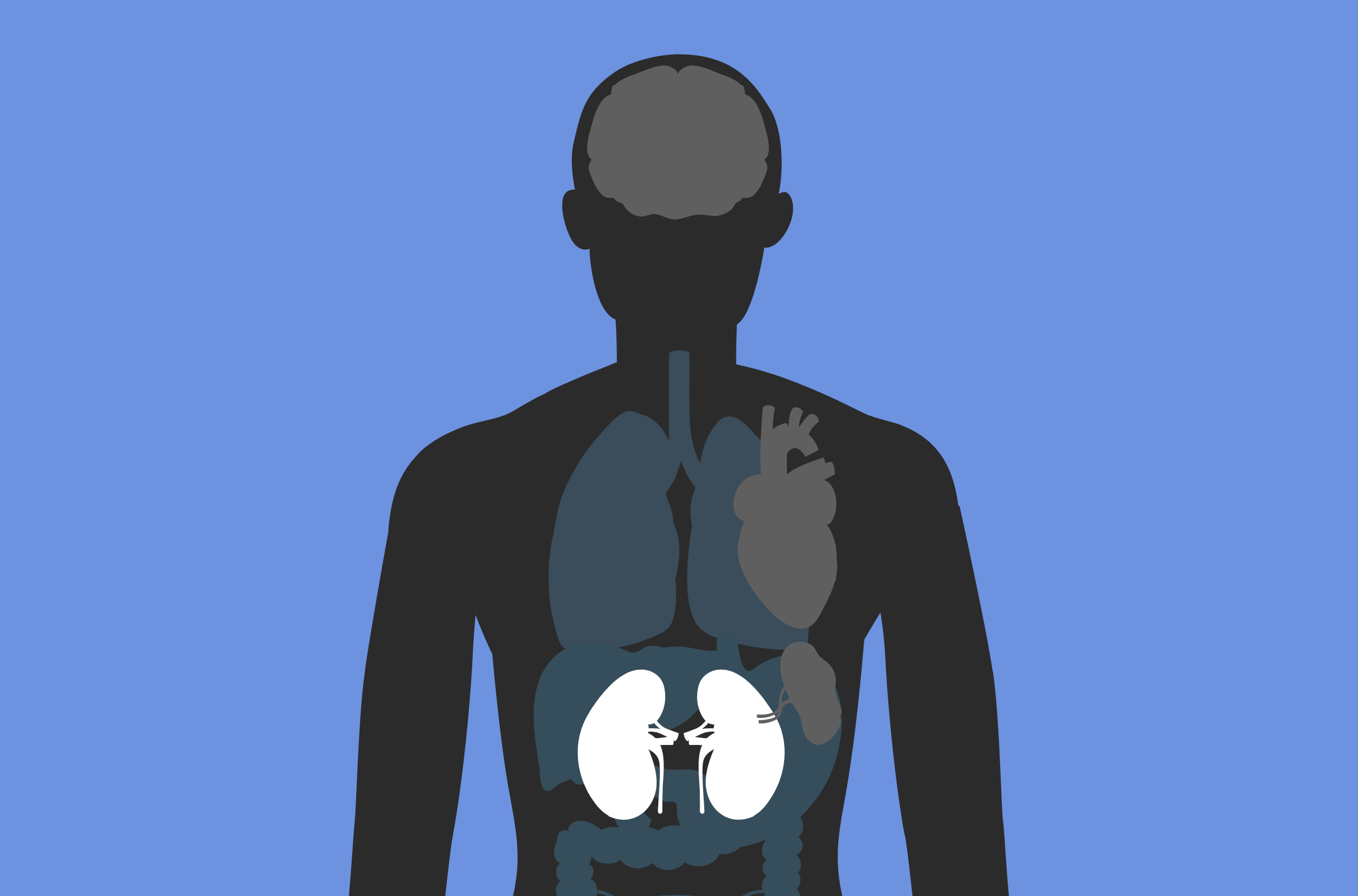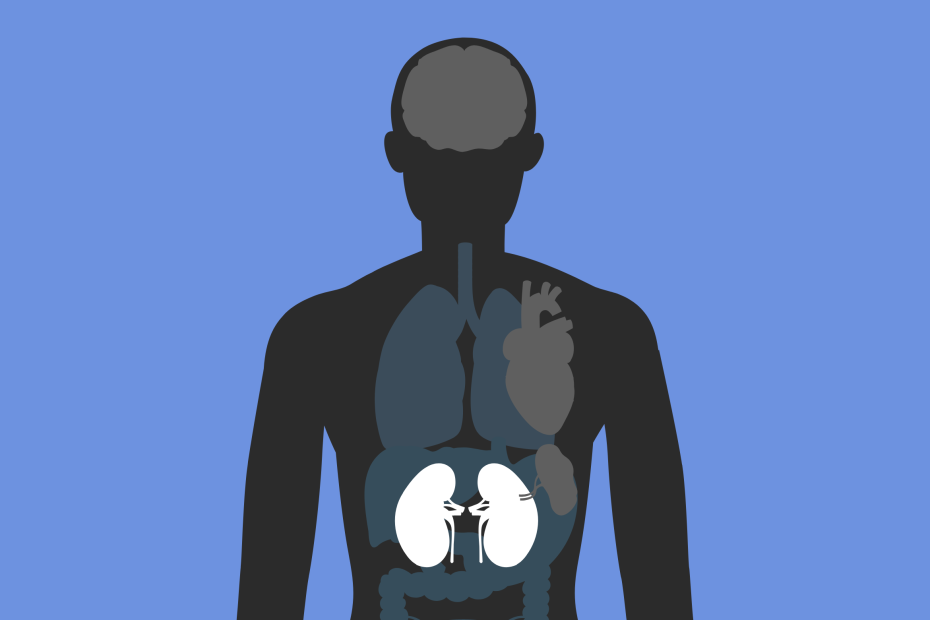Diabetes and the Kidneys
- The best way to maintain healthy kidneys is to meet your blood sugar and blood pressure goals.
- Kidneys work to filter out waste and toxins from our body, reabsorb nutrients we need, and maintain fluid balance.
- People with diabetes are at the highest risk for kidney disease because high blood sugar can damage our kidney’s ability to function.
- Kidney damage is irreversible.
- Some ways to help preserve kidney function include monitoring your blood sugar, eating smaller, more frequent meals, exercising, and choosing carbs with fiber, like whole grains, fruits, and vegetables.
Type II diabetes is a chronic disease that affects how someone’s body utilizes food for energy. Our diet is made up of 3 types of food: carbohydrates, fats and proteins. When talking about diabetes and our diet, we focus on carbohydrates, or carbs, because they affect our blood sugar. There are 3 main types of carbs, which are starch (like a potato or white bread), fiber (like in broccoli or whole grain bread), and sugar (like in soda or candy). When people eat a food or meal that contains a lot of starch or a lot of sugar, our body quickly breaks down the food and releases it into our blood as sugar. As a result, our blood sugar increases, and our cells take it up and either use it for instant energy or store it for use between meals. When someone with diabetes eats the same meal, their blood glucose increases more than someone without diabetes and their body has a difficult time using up all the blood sugar. The blood sugar then stays in the blood instead of being used for energy by their body, and their blood sugar is considered high. A lot of people don’t know that high blood sugar can damage parts of their body – one of which are the kidneys.
What are the kidneys?
We all have two kidneys. They are about the size of a fist and each sit on either side of our spine, just under our rib cage. Our kidneys are very important because they filter out waste and toxins from our blood and excrete them into our urine. They also make sure to reabsorb any nutrients that were accidentally filtered out of our blood that we need. Last but not least, our kidneys play a major role in regulating our fluid balance, which can affect and be affected by our blood pressure. When we have excess fluid and/or high blood pressure, our kidneys excrete some fluid as urine. If the kidneys get damaged, they cannot filter waste and toxins out of our blood, reabsorb nutrients we need, or get rid of fluid efficiently. Enough damage over time can eventually lead to kidney disease.
Diabetes and Kidney Disease
People with diabetes are at the highest risk for kidney disease, and if kidney disease is caused by diabetes, it is called diabetic kidney disease (DKD). One in 3 Americans with diabetes have DKD, and most people do not know they have DKD because it usually presents without any symptoms. The only way to know if you have DKD is to get your kidneys checked by your doctor. Most commonly, this is done with a simple urine or blood test. A urine test will tell you if your kidneys are excreting nutrients that should be retained – the protein albumin is usually used as the marker. On the other hand, a blood test will tell you if your kidneys are retaining waste and toxins that should be excreted. Often creatinine, a waste product, is used as the marker. The best way for someone with diabetes to prevent kidney damage and DKD is to manage your blood sugar and blood pressure.
- How does diabetes affect the kidneys? Since the kidneys filter our blood, if we have a consistent change in our blood, like regularly high blood sugar, our kidneys will be affected. In our kidney, we have millions of filtering units called nephrons, and inside each of the nephrons are tiny blood vessels that pull waste and toxins out of the blood and push nutrients back into the blood. When blood sugar is constantly high, these blood vessels get injured and cannot filter our blood properly. They end up retaining waste and toxins that should be excreted and excreting nutrients that should be kept in the blood. This can be very dangerous if not managed.
- What if I have high blood sugar? High blood sugar leads to kidney damage and eventually DKD. DKD has 5 stages that are increasingly severe with the final stage being kidney failure (end stage kidney disease). Unfortunately, it is impossible to reverse damage to the kidneys, so the only way to prevent end stage kidney disease is to manage your blood sugar and blood pressure.
Preserving Kidney Function
The key to maintaining properly functioning kidneys is to achieve your blood sugar goals. A registered dietitian nutritionist (RDN) and certified diabetes care and education specialist (CDCES) are two members of your healthcare team that can work with you to figure out a plan that works for you. Here we will give some tips on how to get started.
- Check your blood sugar often. The only way to know if you have high blood sugar is to check it with a blood sugar meter (also called a glucometer). The most important times to check your blood sugar are when you wake up in the morning, right before a meal, 2 hours after a meal, and before going to bed. Checking your blood sugar is not harmful in any way. It is also helpful to keep a blood sugar record, so you or your healthcare provider can notice trends in your blood sugar.
- Eat small portions more often. Blood sugar increases in proportion to the amount of carbs you eat, so if you eat a lot of carbs at once then your blood sugar will increase a lot. Eating more frequent but smaller meals will reduce the amount of carbs you consume at one time, so your blood sugar is more likely to stay within a normal range.
- When you exercise, your muscles use the sugar in your blood for energy, and regular exercise can help your body use blood sugar more efficiently even after your workout. The longer and more strenuous the exercise, the longer the positive effects last. Building a sustainable exercise routine will help you achieve your long term blood sugar goals.
- Eat less salt. In most people, blood pressure is affected by salt (or sodium) intake – the more salt consumed, the higher the blood pressure. Avoiding foods high in salt, like processed meats and cheese, and replacing salt at the table with salt substitutes can lower salt intake, thereby lowering blood pressure.
- Make your carbs count. Carbs that are high in starch and sugar will increase your blood sugar faster than any other foods. Therefore, it is important to choose whole grains, fruits, and vegetables, which are carbs that contain fiber, and avoid foods that are high in starch and sugar. Fiber is a type of carb that acts like a roadblock in our digestive system and slows down the uptake of other nutrients, including starch and sugar. Below is a list of foods that contain starch, sugar, and fiber. Note that some foods can fall into more than one category depending on how they are processed, like white bread and whole grain bread.
 share
share



